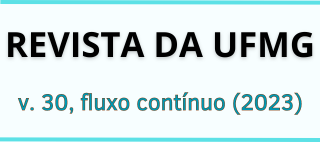Parallels between natural and artificial intelligence from an epistemological comparison
limitations and impacts
DOI:
https://doi.org/10.35699/2965-6931.2023.47680Keywords:
artificial intelligence, social psycholog, cognitive psychology, technology ethics, future of workAbstract
The study addresses the relationship between natural and artificial intelligence, highlighting the limitations of current AI compared to human intelligence. The work involves an epistemological comparison grounded on Piagetian genetic epistemology and the human ethos. Some aspects of the human experience that are accentuated as such limitations are analyzed: affectivity, morality, creativity and ethics. Human affectivity plays a fundamental role in the conclusions reached by human cognition. AI lacks the capacity to develop a cognitive notion of itself and, therefore, of morality, and the way it is conceived does not allow new cognitive structures to be produced to enable complete creativity. Understanding human ethics also contributes to understanding the impacts of AI. The analysis, finally, indicates scenarios for the application of artificial intelligence, according to its limitations in each case.
References
ASIMOV, Isaac. Liar!, em Astounding Science Fiction, edição de maio de 1941. Disponível em https://archive.org/stream/Astounding_v27n03_1941-05#page/n41/mode/2up. Último acesso em 07/08/2023.
CHVÁTAL, Václav. Linear Programming. New York: W. H. Freeman, 1983.
DREYFUS, Hubert. Being-in-the-World: A Commentary on Heidegger’s Being and Time, Division I. Cambridge: MIT Press, 1991.
DREYFUS, Hubert. What Computers Can’t Do: The Limits of Artificial Intelligence. 1972. Disponível em https://archive.org/details/whatcomputerscan017504mbp/page/n7/mode/2up. Último acesso em 07/08/2023.
DREYFUS, Hubert. Why Heideggerian Artificial Intelligence failed and how fixing it would require making it more Heideggerian, em Philosophical Psychology. Londres: 2007.
DUSKA, Ronald & WHELAN, Mariellen. O desenvolvimento moral na idade evolutiva: um guia a Piaget e Kohlberg. São Paulo: Loyola, 1994.
FOOT, Philippa. The Problem of Abortion and the Doctrine of the Double Effect, na revista Oxford Review, número 5 Oxford: Basil Blackwell. 1967.
GOMES, Rodrigo Benevides Barbosa. Hubert Dreyfus e Martin Heidegger: Representação e Cognição, na revista Kinesis, volume X, em 22/07/2018. Disponível em https://revistas.marilia.unesp.br/index.php/kinesis/article/view/8070. Último acesso em 07/08/2023.
HEIDEGGER, Martin. Ser e Tempo. Rio de Janeiro: Editora Vozes, 2005. Publicação original em 1927.
LA TAILLE, Yves de. O Sentimento de Vergonha e suas Relações com a Moralidade, em Psicologia: Reflexão e Crítica, edição 15, 13-25. Porto Alegre: Springer, 2002.
MACEDO, Lino de. As estruturas da inteligência, segundo Piaget: ritmos, regulações e operações. Rio de Janeiro: 1980.
PIAGET, Jean. Inteligencia y afectividad. Buenos Aires: Aique, 2005.
PIAGET, Jean. Psychology of Intelligence. New Jersey: Littlefield, Adams & Co., 1960.
PIAGET, Jean, & INHELDER, Bärbel. A Psicologia da criança. São Paulo: Difel, 1974.
RIBEIRO, Sandra Maria Patrício. Lições preliminares para o estudo do ethos humano contemporâneo. Tese de livre docência. São Paulo: 2018. Disponível em: https://teses.usp.br/teses/disponiveis/livredocencia/47/tde-05042019-100757/pt-br.php. Último acesso em 07/08/2023.
RIBEIRO, Sandra Maria Patrício. Uma perspectiva para a compreensão do ethos humano, em Ethos Humano e mundo contemporâneo. São Paulo: Baracoa, 2019.
THOMPSON, Judith. Killing, letting die, and the trolley problem, na revista Monist: An International Quarterly Journal of General Philosophical Inquiry, volume 59, páginas 204-217. 1976.
TURIEL, Elliot. The development of social knowledge: Morality and convention. Cambridge: Cambridge University Press, 1983.
Published
Issue
Section
License
Copyright (c) 2023 Revista da Universidade Federal de Minas Gerais

This work is licensed under a Creative Commons Attribution 4.0 International License.




